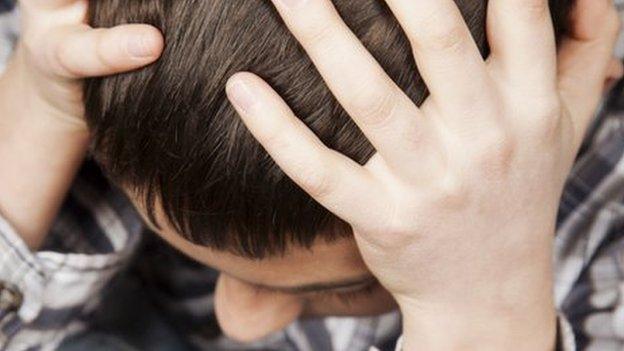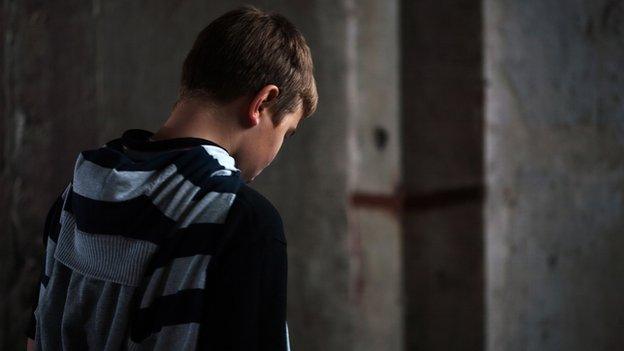Child mental health - promises and challenges
- Published

Promises of £1.25 billion extra for children and young people's mental health services in England over the next five years generated plenty of headlines.
The Deputy Prime Minister Nick Clegg, who has made mental health a policy priority, talked of a "seismic shift" to end the "injustice" of some young people being left without access to care or treatment.
Now the reality and failings of the system have been laid bare by a taskforce of experts and NHS chiefs in England set up by the government.
Their report begs the question of why Mr Clegg and his coalition colleagues have over the last five years allowed children's mental health provision to get to the state its now in.
The report describes how there are an increasing numbers of referrals, longer waiting times and more complex and severe problems being presented by patients.
It says there is a lack of clear leadership and accountability across different agencies, access to crisis services is variable and "real changes" across the system are required. Children and young people's mental health services are, says the report, facing "ingrained and systemic" problems.
Underfunded
The report looks at the funding issue and notes that money often sits in different budgets in different organisations without adequate information on how it is spent and who is responsible. The authors note tactfully that "historically" mental health services have suffered when the public sector is under financial pressure.
Translated, that means this area of the health budget has fallen in real terms and the report says that children and adolescent services funding has been reduced as a proportion of overall spending on mental health services.
The report makes clear that there is a strong economic case for protecting the mental wellbeing of children and teenagers. A mental health problem can greatly increase the risk of physical ill-health - for example, coronary heart disease in adults. Early intervention, its argued, can result in significant savings in costs to public services in later years.
The taskforce does give credit to the Government for some recent initiatives in the mental health field. Improved access to psychological therapies, more beds for young patients in areas with the least provision and extra funding for care of young people with eating disorders are moves which get a positive write-up in the report.
But the group of experts and leading lights in the NHS and at the Department of Health who wrote the report are clear that radical reforms are needed.
The status quo, in their view, is in essence not fit for purpose. The fact that as many as 70% of children and adolescents who experience clinical problems have not had the right counselling or treatment at an early enough age speaks for itself.
Mental health charities have welcomed the report and the response by Health Minister Norman Lamb who has unveiled new measures, including better access to care and more support for parents.
Like Mr Clegg, he is strongly committed to improving mental health services. But that question is still lingering - why has it taken till the final weeks of this Government's term of office for a full action plan to be announced?
- Published17 March 2015
